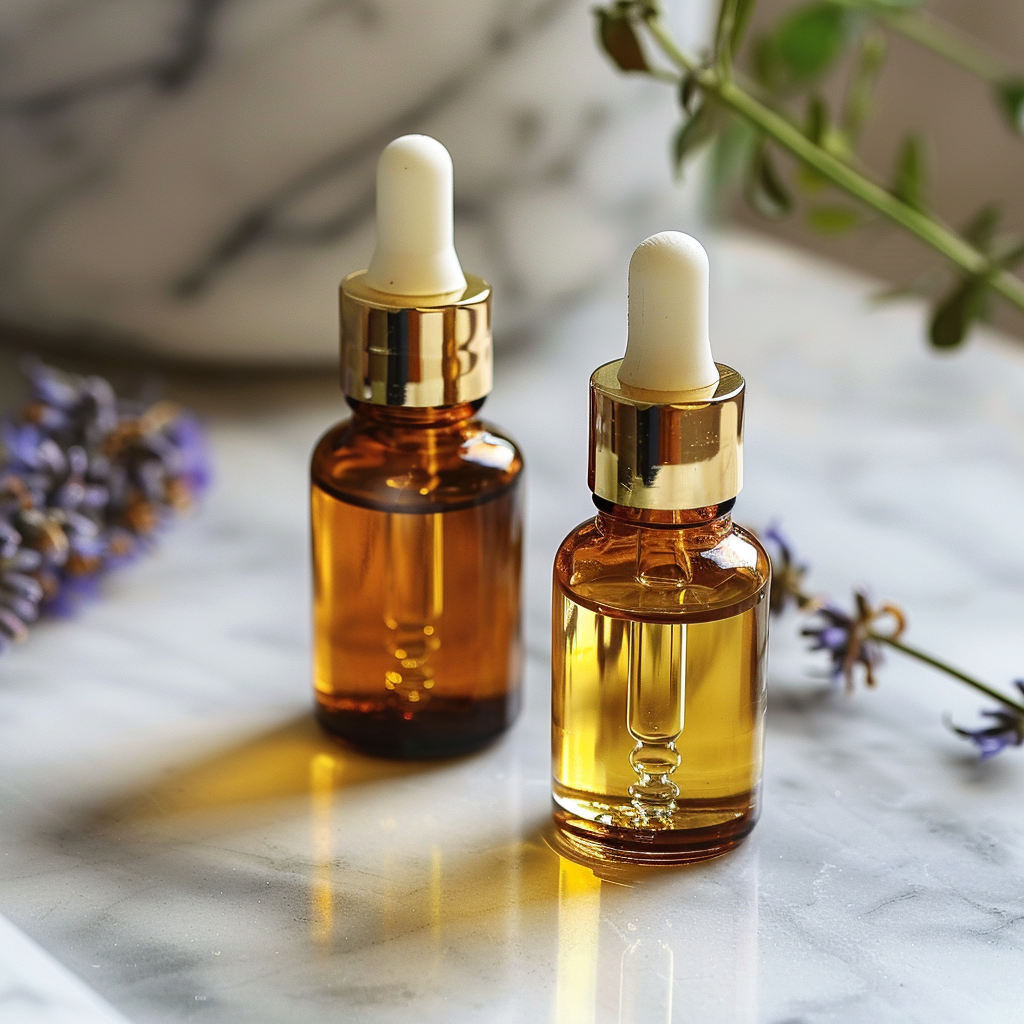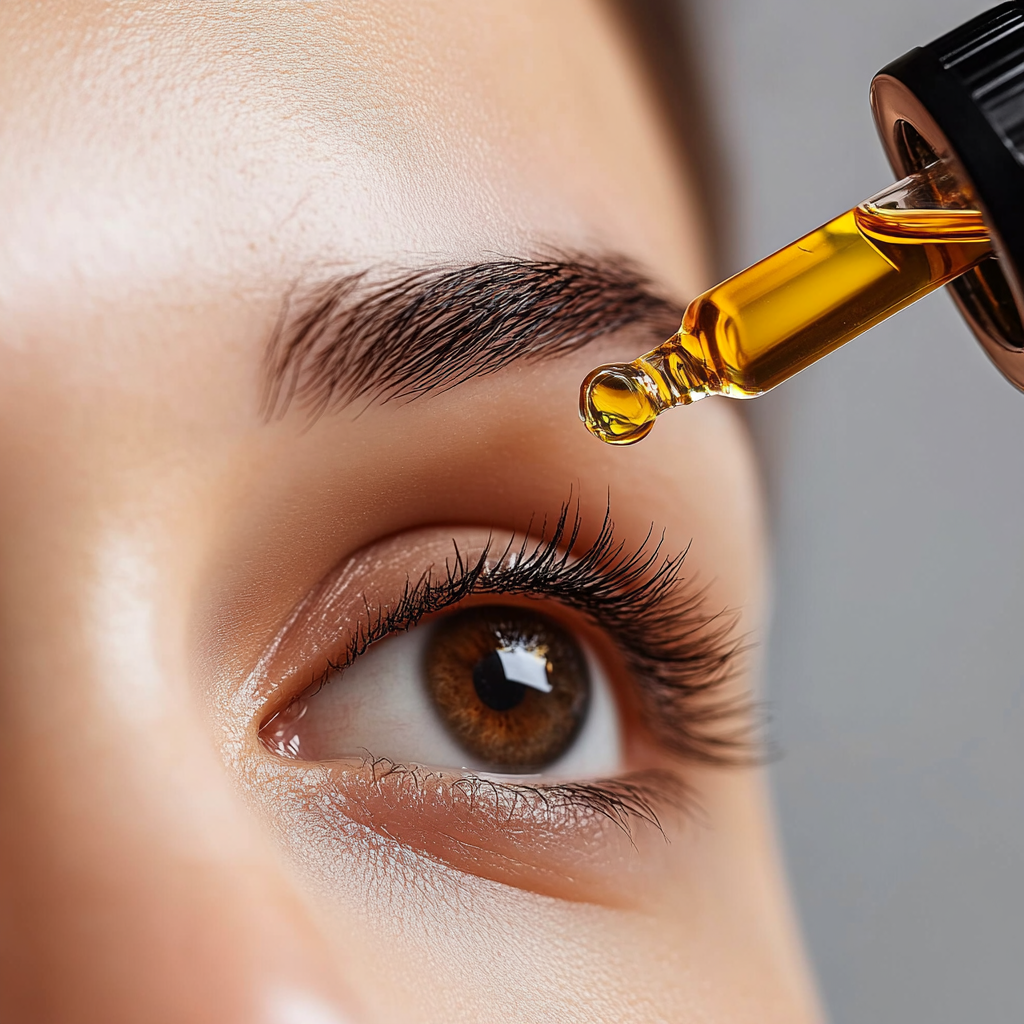Choosing between organic castor oil and jojoba oil can be a challenging decision for those looking to optimize their skincare and haircare routines. Both oils offer unique benefits that cater to various needs and preferences. This article delves into a comprehensive comparison of organic castor oil vs jojoba oil, examining their effectiveness in skin hydration, hair growth, acne treatment, and more.
Organic Castor Oil vs Jojoba Oil: Skin Hydration
When it comes to skin hydration, both have distinct advantages. Organic castor oil is rich in ricinoleic acid, which acts as a humectant, drawing moisture into the skin and locking it in. This makes it particularly effective for dry and flaky skin, providing deep hydration and creating a protective barrier that prevents water loss.
On the other hand, jojoba oil closely resembles the skin’s natural sebum, making it an excellent moisturizer for all skin types. Its lightweight texture allows it to be easily absorbed without leaving a greasy residue. Jojoba oil is non-comedogenic, meaning it won’t clog pores, making it ideal for those with oily or acne-prone skin who still need effective hydration.
In comparing organic castor oil vs jojoba oil for skin hydration, castor oil is better suited for intense moisture needs and extremely dry skin, while jojoba oil offers a balanced hydration suitable for everyday use across various skin types.
Organic Castor Oil vs Jojoba Oil: Hair Growth and Strength
Both organic castor oil and jojoba oil are praised for their ability to promote hair growth and strengthen hair strands. Organic castor oil, with its high ricinoleic acid content, helps to stimulate blood circulation in the scalp, which can encourage hair growth. Its thick consistency also coats the hair strands, providing protection and reducing breakage.
Jojoba oil, on the other hand, is rich in vitamins and minerals that nourish the hair and scalp. It helps to dissolve sebum build-up, which can block hair follicles and hinder growth. Jojoba oil also provides lightweight moisture that keeps the hair soft and manageable without weighing it down.
When comparing organic castor oil vs jojoba oil for hair growth and strength, castor oil is often preferred for its potent growth-stimulating properties, while jojoba oil excels in maintaining scalp health and ensuring the hair remains soft and tangle-free.
Organic Castor Oil vs Jojoba Oil: Acne Treatment
For acne treatment, the antibacterial and anti-inflammatory properties of both oils come into play. Organic castor oil’s ricinoleic acid content helps to reduce inflammation and fight off acne-causing bacteria, making it an effective spot treatment for breakouts. Its ability to deeply penetrate the skin ensures that it targets the root causes of acne.
Jojoba oil’s similarity to human sebum allows it to regulate oil production, which is crucial for preventing acne. It also contains natural anti-inflammatory agents that soothe irritated skin. Additionally, jojoba oil’s non-comedogenic nature ensures that it hydrates without clogging pores, making it suitable for those prone to acne.
In the debate of organic castor oil vs jojoba oil for acne treatment, castor oil is ideal for targeting active breakouts, while jojoba oil is excellent for overall skin balance and prevention.
Organic Castor Oil vs Jojoba Oil: Anti-Aging Benefits
Both organic castor oil and jojoba oil offer significant anti-aging benefits due to their moisturizing and antioxidant properties. Organic castor oil helps to smooth fine lines and wrinkles by providing intense hydration and promoting collagen production. Its antioxidants protect the skin from free radical damage, which is a major contributor to aging.
Jojoba oil is rich in vitamin E and other antioxidants that help to combat oxidative stress. It also contains essential fatty acids that nourish the skin and maintain its elasticity. The light texture of jojoba oil allows it to be easily absorbed, delivering nutrients deep into the skin.
When it comes to organic castor oil vs jojoba oil for anti-aging, both oils are highly effective. Castor oil is better for deep hydration and repairing damage, while jojoba oil offers comprehensive nourishment and protection.
Organic Castor Oil vs Jojoba Oil: Scalp Health
Maintaining a healthy scalp is crucial for overall hair health, and both organic castor oil and jojoba oil excel in this area. Organic castor oil’s antifungal and antibacterial properties help to keep the scalp clean and free from infections. Its thick consistency also moisturizes the scalp, preventing dryness and flakiness.
Jojoba oil’s lightweight nature makes it perfect for balancing the scalp’s oil production. It helps to dissolve excess sebum and unclog hair follicles, promoting a healthy scalp environment. Jojoba oil also soothes and moisturizes the scalp, preventing conditions like dandruff and irritation.
In the comparison of organic castor oil vs jojoba oil for scalp health, castor oil is excellent for treating scalp issues and providing deep moisture, while jojoba oil is ideal for maintaining a balanced and healthy scalp.
Organic Castor Oil vs Jojoba Oil: Moisturizing Properties
The moisturizing properties of the two make them both valuable additions to skincare routines. Organic castor oil’s humectant properties help to draw moisture into the skin and keep it there, providing long-lasting hydration. This makes it particularly beneficial for very dry and cracked skin.
Jojoba oil’s ability to mimic natural sebum allows it to moisturize without disrupting the skin’s natural balance. It absorbs quickly and provides lightweight hydration, making it suitable for all skin types, including those with oily or combination skin.
When evaluating organic castor oil vs jojoba oil for moisturizing properties, castor oil is preferred for intense hydration needs, while jojoba oil offers versatile, everyday moisture.
Organic Castor Oil vs Jojoba Oil: Suitability for Sensitive Skin
Sensitive skin requires gentle and soothing care, and both organic castor oil and jojoba oil meet these needs effectively. Organic castor oil’s anti-inflammatory properties help to calm irritated skin and reduce redness. Its thick texture provides a protective barrier that shields sensitive skin from environmental aggressors.
Jojoba oil’s hypoallergenic nature makes it exceptionally well-suited for sensitive skin. It is non-irritating and helps to soothe and moisturize without causing adverse reactions. Its anti-inflammatory properties also help to calm skin conditions such as eczema and rosacea.
In comparing for sensitive skin, jojoba oil is generally the safer and more soothing option, while castor oil can be beneficial when used in moderation for its protective and healing properties.
Which is Better in Combating Dandruff
Combating dandruff effectively requires addressing both the dryness and microbial factors involved, and both organic castor oil and jojoba oil can help. Organic castor oil’s antifungal properties make it effective in treating dandruff caused by fungal infections. Its moisturizing abilities also help to reduce scalp dryness, a common cause of dandruff.
Jojoba oil’s ability to regulate sebum production ensures that the scalp remains balanced and hydrated. It helps to dissolve excess sebum and flakes, keeping the scalp clean and dandruff-free. Its anti-inflammatory properties also help to soothe an irritated scalp.
When it comes to combating dandruff, castor oil is excellent for treating fungal-related dandruff, while jojoba oil provides overall scalp health and hydration.
Versatility in DIY Skincare
The versatility of organic castor oil and jojoba oil in DIY skincare formulations makes them both popular choices. Organic castor oil can be used in homemade moisturizers, cleansers, and hair treatments. Its thick consistency and deep moisturizing properties make it ideal for various DIY applications.
Jojoba oil’s lightweight and non-greasy texture make it suitable for a wide range of DIY skincare products, including facial oils, serums, and lotions. It blends well with other ingredients and enhances the effectiveness of DIY formulations.
In the debate of organic castor oil vs jojoba oil for DIY skincare, both oils offer versatility, but jojoba oil is often preferred for its lighter texture and ease of use in various formulations.
Overall Value for Money
When considering overall value for money, both organic castor oil and jojoba oil offer excellent benefits at reasonable prices. Organic castor oil is typically less expensive and offers a range of uses, from skincare to haircare, making it a cost-effective option.
Jojoba oil, while often slightly more expensive, provides a broader range of benefits for different skin types and conditions. Its versatility and gentle nature make it a worthwhile investment for those looking for a comprehensive skincare and haircare solution.
In comparing the two for value for money, both oils provide great benefits, with castor oil being a budget-friendly option and jojoba oil offering extensive versatility and effectiveness.







